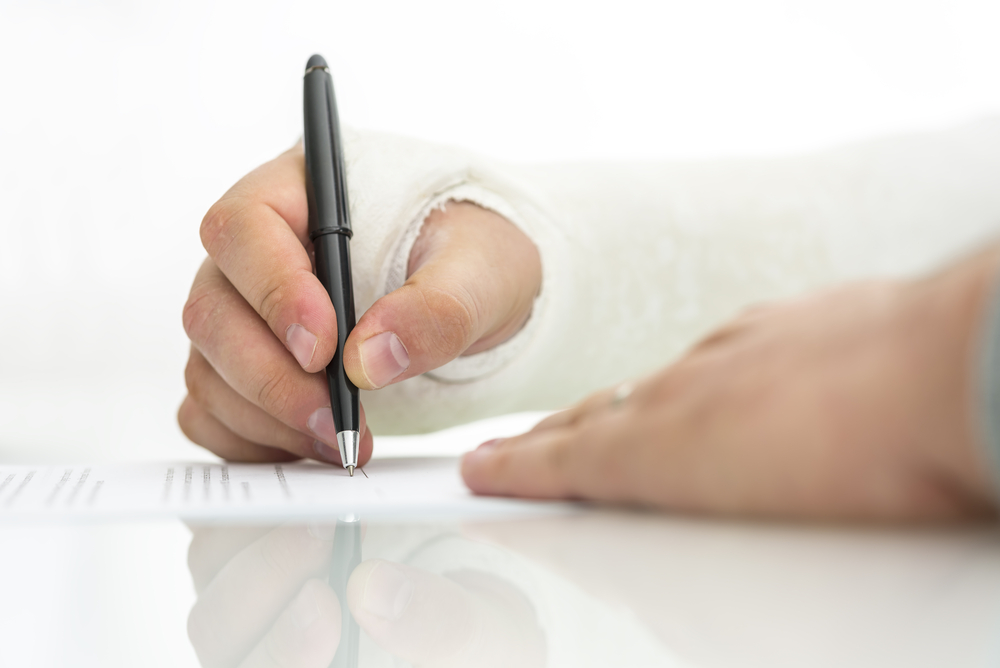
The Personal Injury and Property Damage Case Evaluation Process
October 26, 2018
The Risk and Reward of Workers’ Compensation Claims
October 26, 2018How Do I Pay My Medical Costs After Being Injured?

This is a common question asked by injury victims following an accident. If you’re injured in a car crash because another driver was acting negligently, you may require medical treatment immediately. Finding a lawyer, filing a personal injury claim and going to court or negotiating a settlement takes time. When you’ve received compensation months or in some cases years later you’ve already had to pay for all your medical and rehabilitation costs.
So how do you pay for all those medical costs before you receive your compensation? The answer is highly dependent on your unique situation and whether or not you have health insurance.
If You Have Health Insurance
Let’s say, for example, you were hit by a drunk driver and suffered a broken leg and some other minor injuries. Between the ride to the hospital in an ambulance, your treatment and the hospital and subsequent rehabilitation, you end up paying $15,000 in medical expenses. Let’s also assume your car was totaled and the insurance company pays $10,000 on your auto claim.
You pay your out-of-pocket deductible and the insurance company picks up the rest.
When your attorney files a personal injury claim against the negligent party, your health and auto insurance providers can then file a lien against the lawsuit. Although liens generally have a negative connotation, in this particular situation it’s not due to any irresponsible action on your part. The insurance company’s lien is intended to allow them to recover the money they had to pay to cover your expenses due to the negligence of the individual against whom you’ve filed a personal injury claim.
You were the one who was injured and suffered the property damage, so it is your right to sue, not the insurance company, but because the insurance company was the one who paid the initial costs for your recovery they are entitled to be reimbursed for the expenses they incurred due to the negligent party’s actions.
If, for example, you negotiate a settlement or win a verdict in court, and are compensated with $70,000 for your medical costs, property damage, lost wages, and pain and suffering, the lien would kick into effect. Your health insurer would receive $15,000 and your auto insurer would receive $10,000, satisfying the liens, and you would receive the remaining $45,000.
Hold Agreements
If you don’t have health insurance you may able to enter into a “hold agreement” with your medical provider. Essentially, you’re asking your health care providers to delay notifying credit collectors about your medical debt until your personal injury claim is settled, at which time you’ll pay for the health care you received with your settlement.
Personal Injury Settlement Loan
Personal injury settlement loans, sometimes known as a lawsuit cash advance, is similar to a payday loan, and unfortunately shares the same drawbacks.
The positive is you will be able to pay for medical expenses and address property damage, such as acquiring a new vehicle, before you receive your settlement. They also help mitigate the urgency you may feel with your situation. Personal injury victims sometimes accept settlement offers that are far too low because they are under a lot of pressure due to mounting medical debt and living expenses. Having monetary resources in the form of a personal injury settlement loan may relieve some of this pressure and allow the victim to hold out for a fair settlement offer.
The downside is the incredibly high interest rates settlement loans often incur. It’s not uncommon for personal injury settlement loans to carry 30 to 60 percent interest rates, similar to exorbitant payday loan interest rates. If your case takes a couple years to resolve itself you could easily end up owing more than double what you initially borrowed.
Because personal injury lawsuits are not guaranteed, you won’t have to pay back the loan if you don’t win. That being said, lenders know this, so they are very picky about who they issue personal injury settlement loans. Unless the lender is very confident you will win your case, they likely won’t lend you money.
No-Fault Auto Insurance
Florida has a no-fault motor vehicle law, which essentially means personal injury protection is included in auto insurance coverage. Regardless of who is at fault in your auto accident, your auto insurer will pay for some of your medical expenses. The minimum limit in Florida is currently $10,000.
This automatic coverage will cover up to 80 percent of your medical bills, up to 60 percent of your lost ages and completely cover vehicle replacement costs. There is a cap of $10,000 of injury coverage per person that won’t exceed $20,000 per accident, with a property damage cap of $10,000 as well.
No-fault laws are designed to reduce the number of personal injury claims, but because of their relatively low limits, people who suffer significant injures and experience potentially life altering repercussions often find the no-fault limits inadequate, and must still file personal injury claims.
If you have questions about your medical bills or other legal questions, you can contact us by filling out this form.

